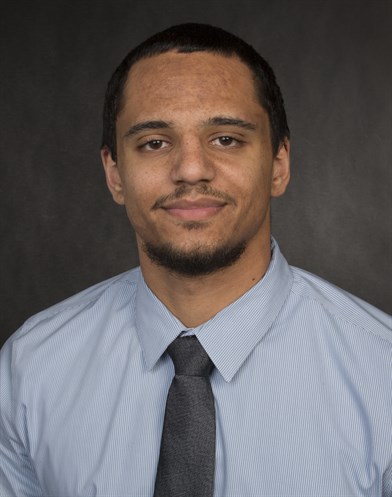 For some, going in to work is a necessary evil, but for Texas A&M University Department of Nuclear Engineering alumnus Micheal Smith, work at the Nuclear Regulatory Commission (NRC) is more than a job, it’s a mission. As a health physicist, Smith works daily to ensure public health and safety with his co-workers in the Radiation Protection and Consequences Branch in the Office of Nuclear Reactor Regulation.
For some, going in to work is a necessary evil, but for Texas A&M University Department of Nuclear Engineering alumnus Micheal Smith, work at the Nuclear Regulatory Commission (NRC) is more than a job, it’s a mission. As a health physicist, Smith works daily to ensure public health and safety with his co-workers in the Radiation Protection and Consequences Branch in the Office of Nuclear Reactor Regulation.
Smith earned his bachelor’s degree in physics from Texas Southern University before coming to Texas A&M for his master’s degree in health physics. Smith conducted his graduate research under the guidance of Dr. Craig Marianno, assistant professor and deputy director of the Nuclear Security, Science and Policy Institute (NSSPI). Smith’s graduate studies were partially funded by the NRC Fellowship program, which ultimately influenced him to pursue his current position with the NRC.
The NRC Fellowship program is designed to provide support for education and workforce development in the field of nuclear science within higher education institutions. The program does not provide individual scholarships or fellowships, but partners with institutions like Texas A&M to provide funding for students with the idea it will act as an investment in the nuclear industry and workforce.
Recipients must maintain satisfactory academic progress and serve six months in a field of nuclear related employment for each full or partial year of academic support the student receives. This helps to ensure that the funds work to improve the nuclear industry in broad fashion. The program has other benefits for students. Smith credits the program with allowing him to focus his energy and time solely to his studies without having to worry about funding.
“I was just able to focus on my research and what I was interested in, my school work and gaining the knowledge necessary to be able to contribute to the workforce after graduation,” said Smith. “Whether I wanted to work for the NRC or somewhere else, it just allowed me to maintain that focus to better prepare me for working after I graduated.”
During his graduate studies, Smith conducted research in the fields of radiation protection, emergency response and consequence management. Specifically, Smith’s research pertained to the analysis of radionuclide deposition ratios around Fukushima-Daiichi following the nuclear disaster. The goal of his research was to determine the validity of radionuclide deposition ratio assumptions made by dose assessors in training exercise assumptions pertaining to actual incidents. In the event of a radiological incident, dose assessors have the job of performing dose assessments that help with formulating protective action recommendations to protect the public.
In his current position as a health physicist for the NRC, Smith reviews license amendment requests from nuclear power plants, while also providing guidance and support to regional power reactor inspectors with the goal of ensuring the safety of the people and environment around nuclear plants. In his time at Texas A&M, he decided that he would like to pursue a career with the federal government, which led him to a position with the NRC.
“Working for the federal government is my way of serving our country,” Smith said. “I always wanted to do that, and the NRC fit perfectly with my degree and my interests.”
According to Smith, the environment within the NRC is very diverse and has provided him with the opportunity to work with collaborators from many different educational backgrounds. Smith most enjoys the aspect of his job that allows him to continue learning from the people around him. For this reason, Smith says going to work brings forward new challenges for him every day.
“I’m enjoying where I’m at right now, learning and gaining knowledge from the experienced individuals around me,” he said. “I think that’s what keeps me excited to come to work, that I’m continually learning but at the same time contributing. Working for the NRC has been an amazing experience, and the NRC fellowship program is a big reason why I work at the NRC now.”
Contributing Author: Ryan Terry